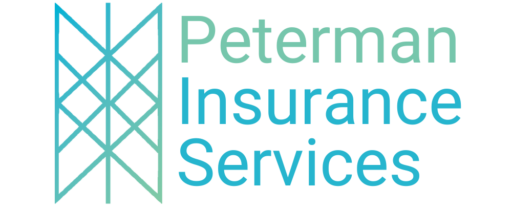Income Insurance Protection: Why working people and business owners need disability income insurance.
Discover the importance of income insurance protection for working people and business owners. Learn how disability income insurance can protect your financial future and provide peace of mind in the face of life’s uncertainties.

Life is unpredictable. You might be in excellent health today, but an accident or illness can change everything in an instant.
You’ve worked hard to build a successful career or business. The income you bring home supports your family, your lifestyle, and your financial goals. That’s why YOU are your most valuable asset – even more than your house, your car or savings account.
It’s essential to be prepared for the unexpected, and that’s where income insurance protection comes in.
If you became sick or injured in an accident and were unable to work, how would the loss of your income affect you and your family? How long could you pay your bills and put food on the table without racking up credit card debt?
Today we’ll explain why working people and business owners need disability income insurance, and how it can help safeguard your financial future. We’ll also discuss the different types of disability insurance, including long-term and short-term options, as well as the unique needs of self-employed individuals.
Income Protection Insurance: The Safety Net You Didn’t Know You Needed
At some point in our lives, most of us will experience a temporary or permanent disability that impacts our ability to work. According to lifehappens.org, just over one in four of today’s 20-year-olds will become disabled before they retire. Also, cancer.gov reports that millions of people in the US are living with cancer, which can also lead to temporary or permanent disability. With these staggering statistics, it’s crucial to have a plan in place to protect your income and you and your family’s financial security.
Income protection insurance, also known as disability insurance, replaces a portion (usually a percentage) of your income if you become unable to work due to illness or injury. This financial safety net can help cover your essential expenses, like mortgage payments, groceries, and medical bills, allowing you to focus on your recovery without the added stress and strain of wondering how you’re going to pay for everything.
Disability Insurance: Long Term and Short Term Options
Disability insurance comes in two main forms: long-term and short-term. Understanding the differences between these options is important in determining which type of coverage is right for you. You might need disability income insurance to last for 6 months, or the rest of your life.
You might want your benefits to start after 30 days – so a 30-day elimination period – or maybe you’re one of the few people who have 6 months of emergency funds available, and can wait for 180 days before receiving your income benefit.
Disability Insurance Long Term
Long-term disability insurance is designed to provide financial support if you’re unable to work for an extended period due to illness or injury. Benefits typically begin after a waiting period (usually between 30-180 days) and can last for several years or until you reach retirement age. The coverage amount, AKA the benefit, is usually a percentage of your pre-disability income, often ranging from 50-70%. 60% is pretty common.
Long-term disability insurance is especially important for people with occupations that involve manual labor or high-risk environments, as well as people with a family history of chronic illness like COPD, heart disease, cancer or diabetes. However, anyone can benefit from the peace of mind that comes with knowing that a portion of their income is protected in the event of a long-term disability.
Disability Insurance Short Term
Short-term disability insurance, on the other hand, is designed to provide coverage for a shorter duration – typically between three to six months. This type of insurance can help cover your expenses during a temporary absence from work due to illness, injury, or surgery. Like long-term disability insurance, short-term benefits are typically a percentage of your pre-disability income.
Short-term disability insurance can be particularly useful for those who don’t have access to employer-provided paid leave or who want additional coverage for unexpected medical events. Having this coverage in place can ensure that you’re financially secure during a temporary setback.
You may be able to get short-term disability insurance through your employer, or the State or Federal government.
Disability Insurance for Self-Employed Individuals
Self-employed individuals face unique challenges when it comes to income protection. Unlike traditional employees, they don’t have access to employer-provided disability insurance, making it even more essential to secure their own coverage.
Disability insurance for self-employed individuals can help protect your business and personal finances in the event of a disability. It can also help cover overhead expenses, such as rent, utilities, and employee salaries, ensuring that your business remains operational even if you’re unable to work. With the right disability insurance policy in place, self-employed individuals can focus on their recovery without worrying about the financial health of their business or their family’s well-being.
When shopping for disability insurance as a self-employed person, it’s essential to consider factors such as your monthly expenses, business overhead costs, and the amount of time you would need to recover before returning to work. This will help you determine the appropriate coverage amount and duration to best protect your income and business.
Additional Optional Benefits
Some insurance companies offer additional optional benefits with disability income insurance policies. These include various occupational benefits, return of premium option, cash value, cost of living supplements, and support for mental or nervous disorders and substance abuse coverage. Options vary per carrier.
How to Save Money on Your Disability Income Insurance Premiums
Some disability income insurance carriers offer discounts for people who are self-employed, spouse/partner discounts, common employer discounts, association member discounts, and discounts if you have more than one policy with a certain insurance company.
If you’re a business owner, check with your tax advisor to see if disability income insurance premiums may be tax deductible for the business.
Don’t Leave Your Financial Future to Chance
Life’s uncertainties make it crucial for working people and business owners to invest in income insurance protection. Disability income insurance provides a financial safety net that can help you maintain your standard of living and cover essential expenses if you become unable to work due to illness or injury.
By understanding the differences between long-term and short-term disability insurance and considering the unique needs of self-employed individuals, you can make an informed decision about the right coverage for your situation. Don’t leave your financial future to chance – secure the peace of mind that comes with knowing your income is protected, no matter what life throws your way.
We’re here to help. Get a quote today!
